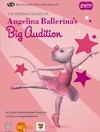Every parent wants their child to do well at school, so and finding out your child is gifted should be a positive and rewarding experience. However, being gifted often brings with it associated challenges for the child. As one child says about her gift, “When I heard gifted I remember thinking primo cos everyone like gifts. But then I’ve found out it wasn’t really good, like when my friends get jealous”. As an early childhood teacher working with gifted children, I have found that there are often many unexpected challenges for the child, family, and teachers to come to terms with.
What is giftedness?
Being gifted means that your child will be exceptional in one or more areas of interest compared to children of a similar age. Children can be exception in areas such as music, art, languages, with numbers, science, or even dance. Your child’s gift may be in one area or in several. Special abilities may be inherited but they are also developed by opportunities that are offered. All socio –economic groups, cultures, and ethnicities have children who are gifted. Cultures have a unique set of principles that place different value upon special abilities, such as in the story of Billy Elliot. Billy was gifted within the area of dance but this was not recognised as special because his community did not place value upon boys being able to dance.
Does it matter that we recognise gifted children?
There is often debate about whether a child should be labelled gifted or not. Some people feel using the word gifted is elitist and sets the child up for feeling superior to other kids. In my previous experience as a centre-based ECE teacher I found a general feeling among the parents that all children should be treated the same; therefore labelling one child gifted, meant they were treated differently. As a teacher my view was a little different. I found it was important for me to know the abilities of the kids I worked with, in order to plan for their unique needs. I also saw the consequences for children as young as four, not being able to fit in with their friends. Sarah was one such child. She thought deeply about things like wars and what the world would be like if dinosaurs had not died out. Sarah had very little in common with her four year old peers, so she would take herself to a quiet place outside or hide under the table.
Should gifted children have special classes?
Whether or not gifted children should have special classes is another issue which there is little agreement about. In my community I noticed a feeling among parents that money should be targeted at children who were under achieving, rather than those over achieving. Gifted children will achieve what is expected, so why give them more help. I feel that every child has the right to achieve his or her potential, so as a teacher I should plan to meet the needs of gifted kids as I do with all children. Sometimes this does mean having another class or a teacher aid, as gifted children have different learning needs.
Characteristics of gifted children
If you feel your child could be gifted these are some characteristics to look out for: Your child may be a good thinker, have sound logic, learn new skills and knowledge quickly, have exceptional memory, and vocabulary greater than their peers. Often gifted children are also very sensitive to others people’s feelings. They may be concerned about what is happening to other children in a war situation, or news stories that show people starving. Gifted children often prefer to socialise with older children because they are more in tune with what they are thinking. A sense of humour and a wide range of interests and knowledge may also be indicators that your child has special abilities.
What to do if you feel your child is gifted
Talk to your child’s teacher about what you have noticed. Be prepared to take along some specific things you have noticed and maybe some work your child has done at home. It is helpful to talk with parents of gifted children to share experiences. You can contact the New Zealand Association for gifted children to see if they have a parent representative in your area. Contact President@giftedchildren.org.nz. You may also like to contact someone local in your area that has expertise in the area of interest for your child, such as an artist or music teacher. The Ministry of Education have an excellent website with information on identification, support, and learning and developmental needs for gifted children and their families at www.tki.org.nz/e/community/gifted/
Regardless of whether or not your child is gifted they should be given plenty of opportunities to have their abilities recognised, valued, and developed, to be able to grow into the person they should be.






Thank you Sue for such a sensitive and thoughtfully-written article. I know many families with gifted children struggle with the issues you’ve raised. How wonderful for the gifted children in your community to have such a responsive and empathetic teacher!